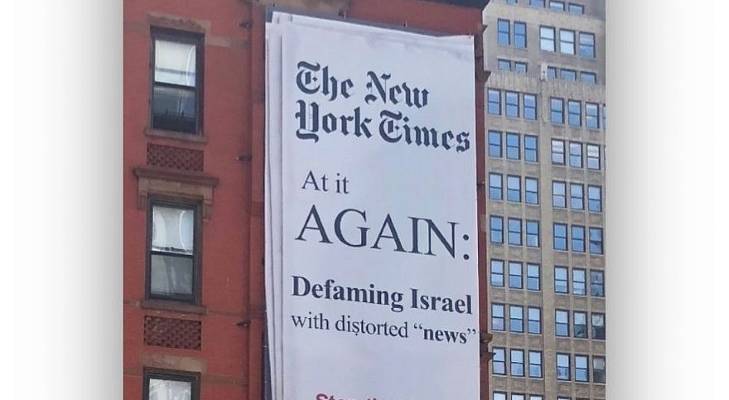‘Goodbye to Hannukah,’ says a headline in the post-Judaism New York Times.
By Ira Stoll, The Algemeiner
The New York Times is greeting the holiday of Chanukah with an article by a woman explaining why she won’t transmit to her children her family’s tradition of celebrating the holiday.
“Saying Goodbye to Hannukah” is the headline over the Times article, which is subheadlined “I lit the menorah as a child, but my kids are growing up in a different type of household.”
The author, Sarah Prager, explains that she celebrated Chanukah as a child because her father was Jewish. “Each of those eight nights we’d recite the Hebrew prayer about God while lighting the menorah. We memorized the syllables and repeated them, but they had no meaning to us and my parents didn’t expect, or want, us to believe what we were reciting.”
The Times article goes on “I married a woman who was raised Catholic but who, like my parents, had left her family religion as an adult. She and I are part of America’s ever-growing ‘nones’ with no religious affiliation at all. Before we had kids, we imagined we’d choose a religion to raise them in, maybe Unitarian Universalism or even Reform Judaism. But when our first child was born four years ago, we realized that going to any house of worship and following a religion just for our children to feel a connection to something wouldn’t be authentic. We couldn’t teach them to believe in anything we didn’t believe in ourselves.”
Though she claims she is “none,” her family actually slides into the Christian dominant culture: “our two daughters will celebrate Christmas and Easter because that’s what my extended family still celebrates.”
The article says the author respects tradition. “I respect the incredible value of keeping traditions alive, especially those that centuries of persecution have sought to erase. But while I have more of a connection to Judaism than some, I am not Jewish and it doesn’t feel authentic to celebrate a Jewish holiday religiously. My kids may end up playing dreidel sometimes, but they won’t learn the prayer that begins Baruch atah Adonai, sacred words that are nonetheless empty to them,” the Times article says. “Discontinuing my family’s Hanukkah celebration fits right in with our family’s tradition of bucking tradition.”
The article was met with scorn by Jewish readers
Arsen Ostrovsky wrote, “Of all the essays @nytimes could publish for #Chanukah, they chose this by @Sarah_Prager , who does not even identify as Jewish, about why she’s choosing not to celebrate this beautiful holiday. Could the NYT have any more contempt for the Jewish people?”
Michael Granoff commented, quoting from the article, “@nytimes: Let’s celebrate ignorance ‘My kids won’t learn the prayer that begins Baruch atah Adonai, sacred words that are nonetheless empty to them.’”
A columnist for the New York Post, Karol Markowicz, commented, “Imagine reading something similarly dismissive of the Muslim faith, and the rote way Muslims thoughtlessly celebrate their holidays, in the NYT. But no, we get an I’m not Jewish and here is why I’m not celebrating Jewish holidays piece instead.”
A radio host and columnist, Josh Barro, commented, “It’s always weird when somebody’s unremarkable diary entry gets published in The New York Times. Here, the author explains that she doesn’t celebrate Hanukkah because she’s not Jewish.”
Lots of readers found the Times’ decision to give a platform to the piece puzzling. “I like celebrating Chanukah cause I am Jewish. Does the NYT want to talk to me?” asked Kendall Hope Tucker.
Ira Stoll was managing editor of The Forward and North American editor of The Jerusalem Post.

HELP ISRAELIS BATTLE CORONA!
Donate to the Corona Emergency Relief Fund. Coronavirus has taken a huge toll on the people of Israel. The poor, elderly and ill are most vulnerable.
Israeli soldiers, security officers and medical care providers operate under great danger and risk to life.
Over 1 million Israelis are out of work. Many cannot make ends meet. We provide financial aid, food, medical supplies and more. Funds are distributed where needed most. The time to act is now!
United with Israel extends a special note of appreciation to the Genesis Prize for their generous support.


